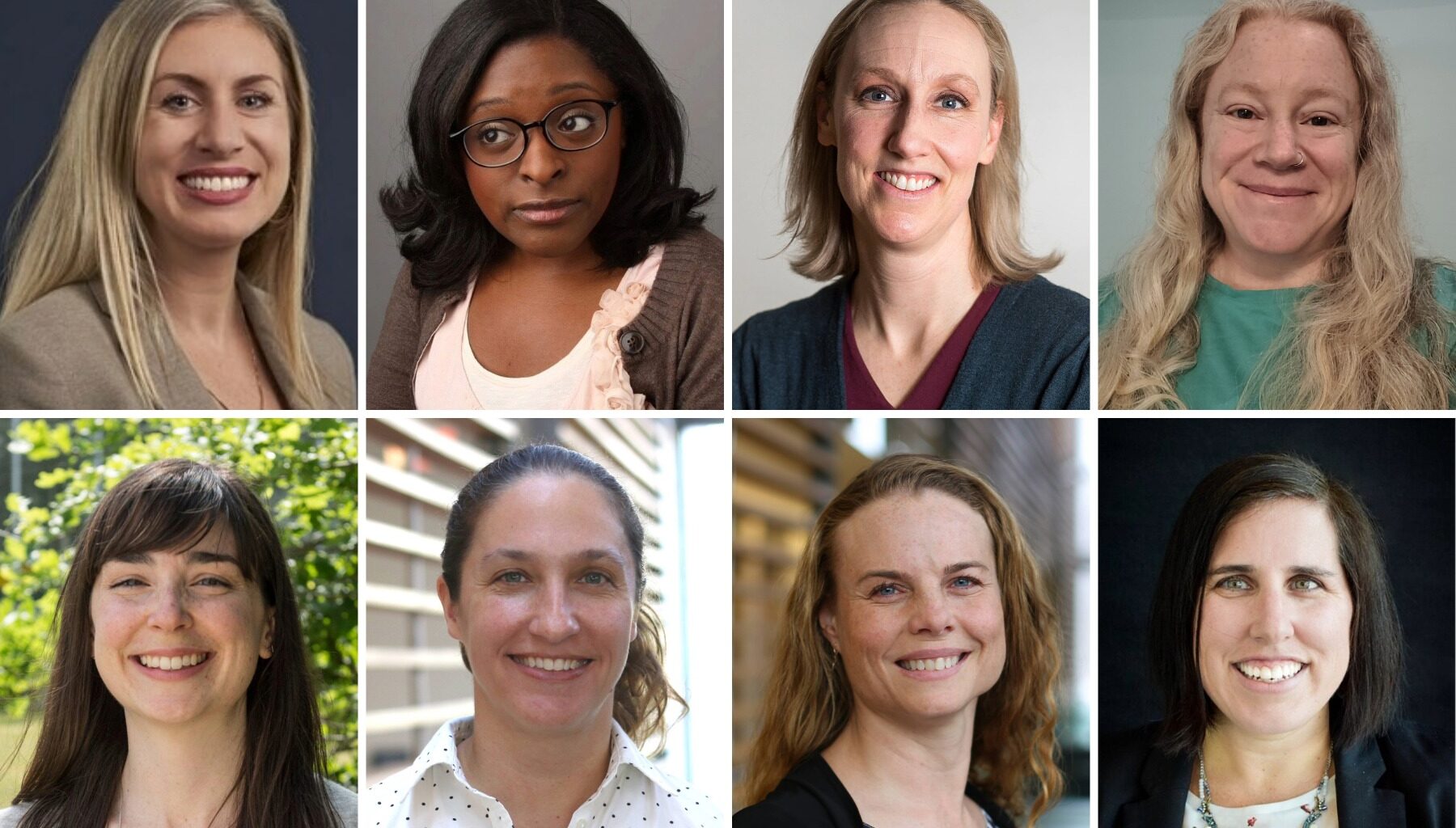Tier 1 CRCs receive $200,000 annually for seven years, while Tier 2 CRCs receive $100,000 annually for five years.
Learn more about Queen’s new CRCs:
Kristine Spekkens – Tier 1 Canada Research Chair in Gas-Rich Galaxy Structure
An expert in the evolution of the universe, Dr. Spekkens (Physics, Engineering Physics, and Astronomy) will investigate gas-rich galaxies like the Milky Way, that are known for prolific star formation. A better understanding of such galaxies and their history will bridge important gaps in our understanding of the universe and help clarify the interactions between gas, stars, and dark matter. Dr. Spekkens’ research program will harness vast cosmic datasets aiming to enable, for the first time, the mapping of atomic gas in galaxies across cosmic time.
Amy Latimer-Cheung – Tier 1 Canada Research Chair in Quality Physical Activity Promotion and Disability
While nearly 8 million Canadians live with a disability, only a fraction have access to quality physical activity. This gap in programming and services limits opportunities for persons with disabilities to enjoy the physical, mental health, and social benefits of physical activity. Working together with persons with disabilities and community organizations, Dr. Latimer-Cheung (Kinesiology and Health Studies) is developing, testing, and implementing evidence-based strategies and programs to increase the quality of sport, exercise and active play experiences of children, youth and adults with disabilities. Dr. Latimer-Cheung previously held a Tier 2 CRC in Physical Activity Promotion and Disability.
Sari van Anders – Tier 1 Canada Research Chair in Gender/Sex and Sexual Diversity
A better understanding of gender/sex and sexual diversity is a key challenge for our time – including in promoting equity of knowledge frameworks and for making sense of ourselves. The author of “sexual configurations theory” (SCT), one of the most advanced models of gender/sex and sexual diversity available worldwide, Dr. van Anders (Psychology) will expand SCT and develop new tools for people to use in their own understanding gender/sex and sexual diversity and in socially situated research. Dr. van Anders’ work will explore gendered and heteronormative understandings of sexuality, including innovative interdisciplinary social neuroendocrine approaches, and look into discriminatory and inclusive school practices and their educational outcomes. This work builds on previous research from 2018-2025, when Dr. van Anders was one of only 24 chairholders of a Canada 150 Research Chair.
Kristin Moriah – Tier 2 Canada Research Chair in Black Feminist Technologies and Artistic Praxis
A deep dive in Black feminist literature, art, culture, and academic texts will allow Dr. Moriah (English) to advance our understanding of both historical and contemporary Black feminist research. She will champion the digitization and preservation of the archives of Black community leaders, artists, and creators and connect libraries, repositories, and communities to facilitate access to these materials. As part of her research program, Dr. Moriah will also establish the Centre for Black Feminist Arts Inquiry, which will provide opportunities for collaboration between students and faculty from Canada, the United States, and Europe.
Emily Oby – Tier 2 Canada Research Chair in Non-Human Primate Models of Health and Disease
Doing research at the intersection of neurophysiology, neural engineering, and machine learning, Dr. Oby (Biomedical and Molecular Sciences) aims to investigate the neural mechanisms behind motor learning, that is, learning that enables us to perform tasks like walking, running, dancing, kicking, and playing instruments or sports. She will use brain-machine interfaces to unravel neural changes in neural activity related to learning new motor skills, a project that could ultimately lead to new applications in learning and rehabilitation, particularly in stroke patients with stroke or spinal cord injury.
The three renewed Queen’s Canada Research Chair positions were Susan Bartels (Emergency Medicine), Tier 2 CRC in Humanitarian Health Equity, Jacqueline Monaghan (Biology), Tier 2 CRC in in Plant Immunology, and Stéfanie von Hlatky (Political Studies), Tier 2 CRC in in Gender, Security, and the Armed Forces.

